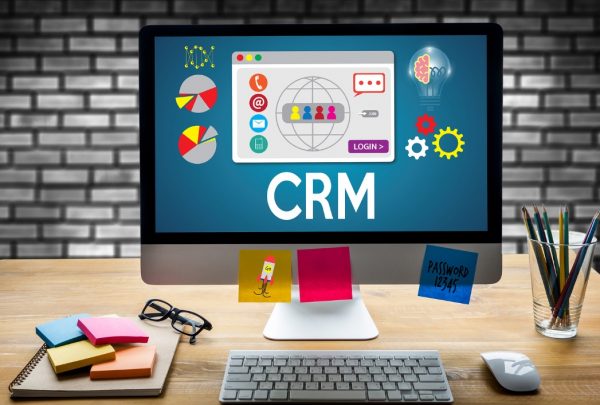If you missed Part 1 of our series, Choosing the Right CRM for Your Business, read it here.
In Part 1 of our recent CRM blog series, we congratulated your team for the decision to either look for a new CRM to catapult your business growth, or to upgrade your CRM system to take your business to the next level.
What we did uncover is that the process of choosing the right platform for your business can be overwhelming, as there are so many choices. We recommended that your first steps should be to identify the different features that are “must-have needs”, as well as the features that are the “nice-to-haves wants”. This first step will help you start to narrow the choice down.
Once you’ve got your arms around your needs and wants, identify the category of CRM you’re looking to engage. CRMs vary by level of sophistication, integration into systems, and of course, cost.
Individual/Small Biz: ($)
Ideal user size is between 1 – 5.
These CRMs are designed to manage the relationships that are key to small biz. From tracking birthdays and important pieces of personal information, to integrating social media feeds – they really focus on that connection. You can usually get into these systems for not a lot of money and usually set them up yourself – thus limited development money and a lower ongoing cost to maintain.
Examples of these include: Nutshell, Keap, Freshworks, and Copper.
Small Biz/Mid-Size Biz: ($/$$)
Ideal user size is between 1 – 100.
These CRMs are designed for small to mid-size businesses that are looking for a more robust CRM, yet easy enough to implement, integrate with key applications and develop as needed. These systems are great for companies looking to manage sales teams, track key sales metrics and bolt on a separate marketing platform.
Examples of these include: Pipedrive, Zoho, and Insightly.
Marketing Oriented Biz: ($$/$$$)
Ideal user size is between 1 – 100+.
These CRMs are more marketing-centric, and focus on lead generation, marketing automation, and analytics. These types of solutions are great for companies that work with a larger number of prospects that require a lot of engagement to move them through the sales process (especially for transactional sales – like SaaS products). The tradeoff is many of these systems are more oriented to the marketing side, making it more difficult for salespeople to utilize the platform. They will usually require someone with additional expertise to get the most out of the systems.
Examples of these include: HubSpot, Sharp Spring, and Pardot.
Enterprise: ($$$)
Ideal user size is 100+.
These CRMs are designed for a high degree of customization, which requires high dollars to customize the system in order to make them work for your company. While some have rolled out lower price options with some pre-built functionality, the core remains the same. These systems are often highly integrated with ERPs, websites, email marketing, service ticketing, etc. These always require a developer to get the full use and usually a minimum of $10,000 to start with ongoing development.
Examples of these include: Salesforce, Dynamics, and Sugar.
Industry specific: ($$/$$$)
Ideal user size is between 1 – 100+.
These CRMs are specifically designed for your industry. While some can be good and give you a pre-built system, they often lack on-going development from the parent company and can be cumbersome to use.
Examples vary by industry.
While there are many more sub-categories and features of each CRM, they typically fall in some manner into the above categories.
At ECS, we provide our clients with complete CRM implementations of both Pipedrive and Hubspot. From discovery and sales process, to the training of the end users, we’ve got you covered. Our clients are able to achieve adoption rates of more than 90%, across a multitude of industries.
How do we do it?
Through our years of experience working with businesses of a wide variety of sizes, across an extensive range of industries, we have tested many types of systems and worked with the teams using the CRM for months (and sometimes years) afterward. So we have learned what works, and what doesn’t when it comes to the implementation of a CRM and ensuring a team adopts it, uses it, embraces it, and is successful with it.
Simplicity: Our approach relies on building CRM solutions that are as simple and intuitive as possible, with the end-users in mind. We find this to be more important than adding dozens of nifty automations and integrations that are only used by a few.
Process buy-in: As a first step, we ensure that the sales, finance, and operations teams have a sales and delivery process that everyone understands and is prepared to follow.
Hands-on training: From entering and maintaining data to pulling reports, we train our clients on everything they need to work efficiently. This is time well spent and prevents unnecessary workarounds that take up time.
A Case Study Example
Here’s a recent example of CRM implementation ECS completed for a mid-market manufacturing client.
Like many others in their industry, this client was struggling to find a CRM to help solve their sales pipeline management issue. They sought a CRM that would work seamlessly with their existing systems, and would have the approval of their sales teams. Ten salespeople were all working on their own, with no tracking on activity and no ability to report results. Other mechanisms CRM solutions had failed the company as there was never adoption of any new proposed software.
By working closely with the client and using the approach described in this article, the ECS team was able to deliver a solution that not only met their reporting and sales management requirements, but also accelerated lead generation and resulted in top-line growth.
Read the full case study here.
We hope you’ve found our 2-part series of value. If you’d like to chat more about CRMs in general or about how we can support your needs, we’d be happy to talk. Feel free to reach out to any of us:
Ajay Joshi – Sales Operations ajoshi@thinkempirical.com
Margo Michel – CRM Lead – mmichel@thinkempirical.com
Bill Morrow – Managing Partner – bmorrow@thinkempirical.com



